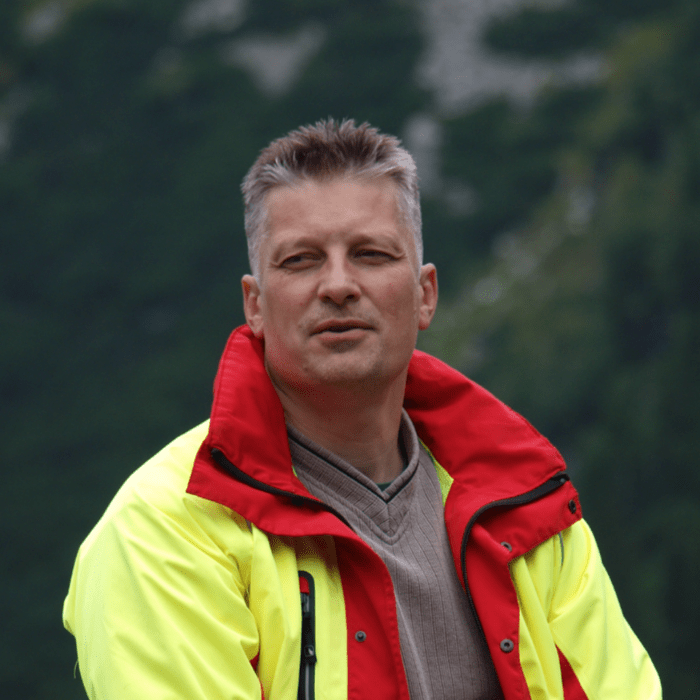Ph.D. Piotr Dynowski

Professionally affiliated with the University of Warmia and Mazury in Olsztyn, Department of Socio-Economic Geography, where he holds the position of assistant professor; previously associated with the Department of Botany and Nature Conservation. He earned his Ph.D. in biological sciences, specializing in ecology, in 2006, and his habilitation in Earth and environmental sciences in 2019. His research interests include nature conservation, mapping terrestrial and aquatic plant communities using GPS and GIS technology, assessing the conservation status and potential threats to natural habitats, and conducting underwater research and ecological assessments of lakes for the preparation of conservation plans and protection task plans for protected areas. He has been an executor and co-author of several scientific and research projects. He is a co-organizer of training sessions, seminars, and scientific and popular science conferences. He has been a diving instructor for many years, a member and chair of the Scientific Subcommittee of the Underwater Activities Committee of the Polish Tourist and Sightseeing Society (2013-2023), a member of the Polish Geographical Society, the head of the Underwater Research Laboratory (UWM in Olsztyn), and a member of the Program Council of one of the largest educational projects of the Polish Scouting and Guiding Association, "Scouting Nature." He is the creator and co-author of the PEK and MEK CMAS ecological diver specializations.
Title of the presentation: Underwater Social Monitoring and Citizen Science – Best Practices and Experiences from Europe, and the Situation and Perspectives in Poland.
The 1972 UNESCO Convention concerning the Protection of the World Cultural and Natural Heritage was born from the fusion of two distinct movements: one focused on the protection of cultural sites and the other on the conservation of nature. It assumes that heritage belongs to the entire society and should not only be protected but also made accessible and used for educational purposes for a broader public.
The presentation will discuss the involvement of divers, not professionally associated with science, in underwater environmental monitoring, underwater inventories, and underwater scientific research. It will explain the terminology of underwater social monitoring and citizen science, using examples from Poland and around the world. Additionally, the presentation will cover the principles of a nationwide, cross-federation system of underwater social monitoring, which members of the Underwater Scientific Research Foundation have been developing for several years, testing selected system elements.
2024-11-24
- 16:00 - 16:50
- 50 min
- lectures hall 1

